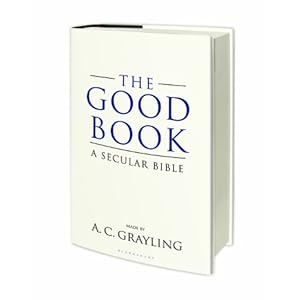I would like to address this question in two parts:
- The purposes of going to
Church beyond an encounter with God
- A Biblical perspective on
spiritual experiences
… and I am going tackle these subjects in reverse order
(Part 2 comes at Christmas!)
What is a Spiritual Experience?
The Alister Hardy Society has been in the forefront of
collecting stories of spiritual or religious experiences. The Chair of the Society,
Jonathan Robinson wrote: ‘I do not believe we should attempt to define the word
‘spiritual. Practically every person will give a different description of what
they feel the word ‘spiritual’ means.’ This might be true but it is rather
frustrating!
William James attempted to outline some characteristics of
religious experiences; he suggested they were transient, insightful and
accidental… and indescribable. I offer the simple phrase rich moments:
we are aware of being taken out of ourselves, or of the sense of another
presence, or of a deeper appreciation of the world around us, or being moved
within ourselves. Something deeper happens in or to us that we did not begin.
Alister Hardy began to collect stories of such rich
moments. He believed that most people have spiritual experiences – although
they might not often talk about them. Some occur in religious contexts –
worship (including music and dancing), prayer and meditation – but others
altogether elsewhere such as in the rock concert or mountainside walk.
Is every Spiritual Experience an Encounter with God?
While I would want to include a great number of these rich
moments as points at which we somehow touch God (or he touches us) – it
cannot be that every experience is genuinely an encounter with the Father of
our Lord Jesus Christ. In particular there are numerous occasions when people
have contrived experiences, trying to conjure up God: Henry James for example
took various drugs to induce a ‘spiritual state.’
But the Bible teaches that everyone is touched by God – “For
since the creation of the world God’s invisible qualities—his eternal power and
divine nature—have been clearly seen…” Romans 1:20. A Godly rich moment
is a point of connection. But we should be asking of the feeling of connection
– ‘is this the living God’?
How might we seek God?
By God’s grace he is looking for us and we can meet him,
often unexpectedly. We sense that thrill, or movement of our spirit that is his
touch.
But it is also by his grace, that we have been provided with
established situations in which we are more likely to be quickened spiritually,
and more certain that it is him we are encountering. The most obvious and
tested:
- reflecting on the Bible,
and personal prayer
- public worship, Christian
teaching, and Holy Communion
- conversation and prayer
with other believers
So I would encourage everyone to look for God’s presence in
their world, but to build their lives around the core spiritual ‘times and
places’, I have mentioned above.
But we need to be humble; God will speak or act when he
chooses. We cannot manipulate him. So it may be that there are times when our
religious life seems less promising.
At those times we need to know that there is more to being
part of the church than encountering God. Then we will continue for other
reasons…






 book ‘The Good Book’ – a humanist bible. There is some Bible-bashing in the first half, and typifying the Biblical God as someone who commits massacres. There is also a little envy – yes, the Bible has been inspiring (especially the non-religious bits), well edited and invented chapter and verses. These are the things Grayling will try emulate in his volume.
book ‘The Good Book’ – a humanist bible. There is some Bible-bashing in the first half, and typifying the Biblical God as someone who commits massacres. There is also a little envy – yes, the Bible has been inspiring (especially the non-religious bits), well edited and invented chapter and verses. These are the things Grayling will try emulate in his volume.